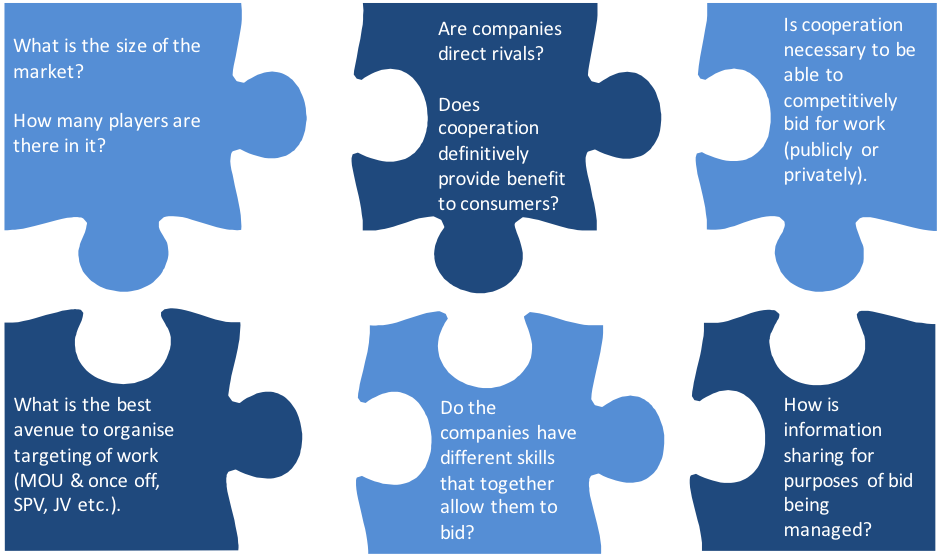Welcome to this week’s edition of the Keystone Column containing business stories and public procurement opportunities that drive the commercial strategy of ambitious companies. This week, we focus on procurement trends: why in-house legal counsel seem less than impressed with the value for money they are getting from external legal advisors on framework agreements, the rising trend of consortiums in public contests and the questions SMEs need to answer before they consider forming one and we feature a company that is changing the face of traceability compliance in the agribusiness sector.
Business stories – Australia questions its approach to buying legal services
Australia is renowned internationally for its public procurement system and is one to watch for procurement trends. However, all systems have their vulnerabilities and weaknesses. This week, a legal journal in Australia published an article that caught our attention as it stated that up to 50% of government in-house counsels were unhappy with the value for money they were obtaining from external advisors. Reading between the lines, we believe the tendency to overengineer certain procurement categories may be falling victim to the law of unintended consequences. This is especially the case where framework agreements are involved.
This is our take and it is one that we hope the OGP in Ireland remains alive to as it builds out legal services framework agreements in Ireland.
- Framework agreements are restrictive and become less compelling over time if the private sector grows rapidly. The best talent tends to follow the money. Public buyers may end up losing out by overengineering their needs with a framework agreement. Framework agreements can make sourcing strategies too complex and often result in buyers driving a hard bargain on rates. As time passes, rates can become quite disjointed from what the market is willing to pay for legal services. Buyers can trip themselves up by imposing sourcing superstructures like framework agreements on their organisation. Losing agility can mean an organisation that pays an acceptable fee level (and gets access to good talent) initially becomes one that is in the bottom 20% of a supplier’s profitability base quite quickly (and gets the talent that buys as a result).
- Not all legal services need to be included in a framework agreement and as far as Ireland is concerned this can often lock out specialists and lock in generalists that work for big brands that comply with the “right” checklist of criteria. It’s hard to achieve best value when you do not have access to the best people.
- Finally, because of the levels of caution public buyers often demonstrate, suppliers can think it is unlikely that they will be dropped from a framework agreement for poor performance. If there are no repercussions, then why wouldn’t you downgrade the resources allocated to a contract?
The credibility of these framework agreements will only be proven when there is blood in the water and both the buyer and the erstwhile supplier understand why this is the case. It is our view that while framework agreements can deliver value for money, they are a blunt instrument that can impede access to talent and can become divorced from the real economy.
Interesting trends – Winning together as part of a consortium
The questions in the diagram below are taken from a paper developed by the Competition Authority. These are some of the key questions that consortium members need to be able to answer to satisfy themselves that competition law is not being infringed upon by their collaboration.

A recent example as to how this is becoming an inevitable reality for many SMEs is how training contracts are being tendered at present by the Education Training Boards (ETBs). Previously, each ETB had relationships with their own panel of suppliers. In the current contest, a menu of training courses for the State has been published (it is very broad). Across the various regional lots, it is difficult to envisage how even large providers of training courses can fulfil such a broad curriculum without resort to a quasi-consortium model (i.e. including contractors in their bid to satisfy areas that are non-core to their current business models).
This trend is here to stay so it’s time for Irish businesses to start thinking about how they can collaborate to grow.
Innovation – traceability from fork to plate.
We’re returning to one of the procurement trends in the food sector we’ve featured before: traceability from fork to plate. The forthcoming National Ploughing Championships will feature a smorgasbord of companies on display demonstrating the latest thinking across a plethora of industries and sectors. Entreprise Ireland’s innovation arena at the ploughing championships will feature the technology company Contomply. They have developed software that automates and streamlines the documentation required for compliance purposes in agribusiness. It provides full traceability from fork to plate through the supply chain using flexible, tablet friendly software technology. It’s a clever idea addressing a clear need in the agribusiness space that saves time on the farm and in both transport and processing of farm produce. .
Note: we are in the sourcing & procurement business. We highlight things we like or that are novel or innovative. Innovators should be encouraged.
New public procurement tenders this week
Visit the Keystone website to view our take on the 500+ active public procurement opportunities with more than five days until their deadline. There are a vast range of services, supplies and construction related to public procurement opportunities in the following sectors (there are many more sectors than the sample list below):
- Construction and related trades,
- Professional & Advisory Services,
- PR, Media, Advertising and related,
- ICT supplies and services,
- Training,
- Property & facilities management,
- Vehicle & automotive,
- Catering and related services,
- Cleaning and related services,
- Waste Management,
- Maintenance and related services,
- Horticultural supplies & services,
- Research & environmental monitoring,
- Printing, office supplies and related services,
- Trades,
- Medical and scientific research, supplies and services,
- A vast range of other services and supplies.
Businesses interested in any of these public procurement opportunities that are unsure of how they can follow-up on these tenders can contact Keystone at any stage. We would be happy to discuss your needs and where they may fit with your business growth plans. These public procurement opportunities are sources of business growth and innovation for companies across the country.
Keystone E-Tenders Report Open YTD as at 0909 (by date of publication)
Keystone E-Tenders Report Open YTD as at 0909 (by sector)
Please note, e-tenders often has public procurement opportunities incorrectly categorised so people relying on e-tender alerts could easily miss out on opportunities if they are dependent on it. E-tenders is only as reliable as the people inputting tenders and mistakes are made very frequently. The Keystone Column includes all live tenders posted on e-tenders since January 4th 2016 that have five or more days until their deadline as at September 9th 2016.

